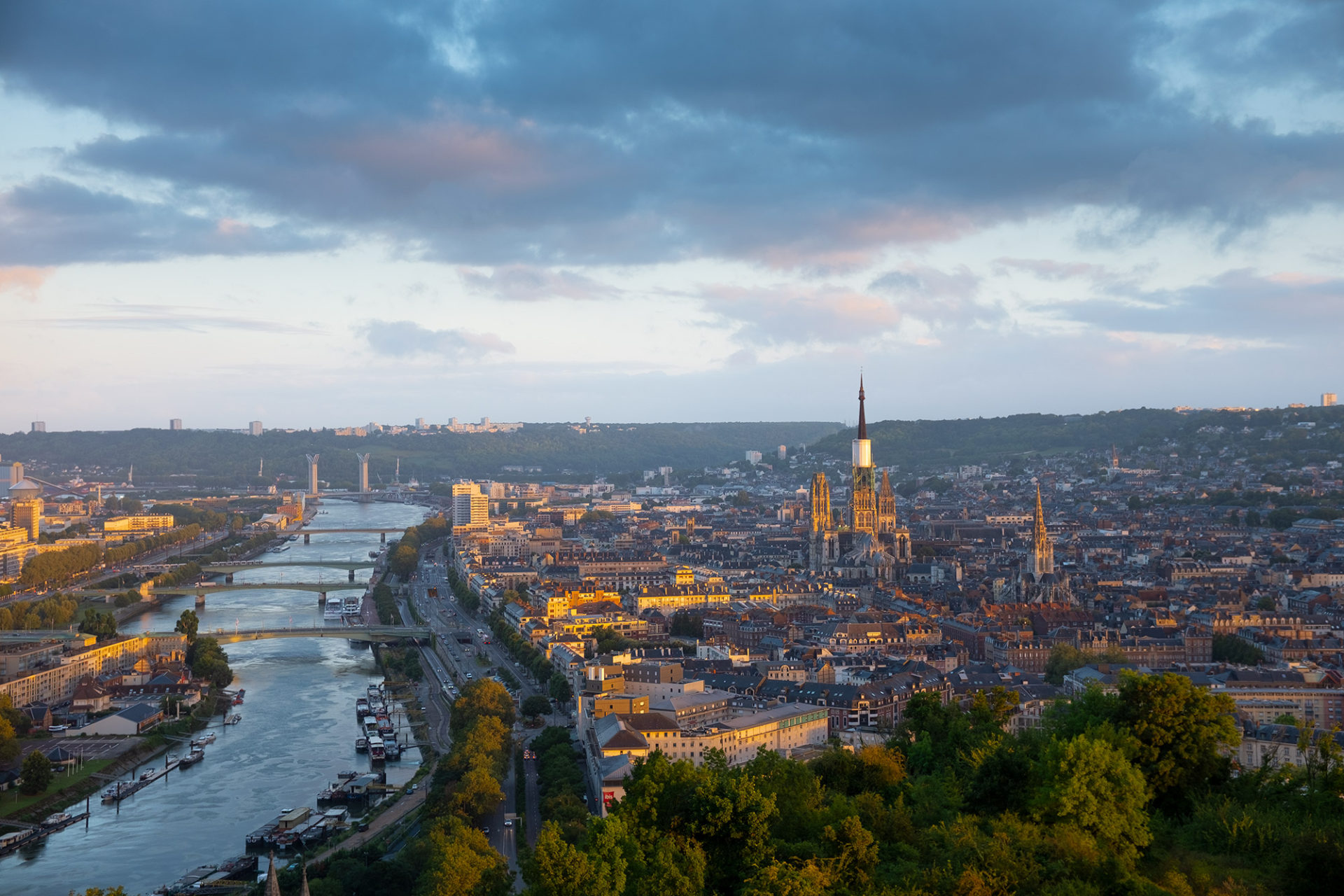
Embarking on a journey through the picturesque landscapes of Normandy was a dream come true. Our road trip adventure began in the historic city of Rouen
Rouen is a city located in the Normandy region of France. It is the capital of the Seine-Maritime department and is situated on the northern bank of the Seine River. Here are some key points about Rouen:
- Historical Significance: Rouen has a rich history that dates back to Roman times. It became a major city during the Middle Ages and was known as one of the largest and most prosperous cities in medieval Europe. The city played a significant role in the Hundred Years’ War between France and England.
- Joan of Arc: Perhaps one of the most famous aspects of Rouen’s history is its association with Joan of Arc. She was famously put on trial and executed in Rouen in 1431. Today, there are several sites in the city that commemorate her life and the events surrounding her trial and death.
- Architectural Heritage: Rouen boasts a remarkable architectural heritage. The Rouen Cathedral (Cathédrale Notre-Dame de Rouen) is one of the most impressive examples of French Gothic architecture and was the subject of many paintings by Claude Monet. The Gros Horloge, a medieval astronomical clock, is another notable landmark.
- Art and Culture: The city has a vibrant cultural scene. It has been an inspiration for artists like Monet, who painted a series of works depicting the Rouen Cathedral. The Musée des Beaux-Arts de Rouen houses an extensive collection of artworks spanning various periods.
- Economy and Industry: Rouen has a diverse economy with a strong industrial base. It is an important port city, located at the head of the Seine River, and serves as a major gateway for trade. The city is known for industries such as petrochemicals, refining, and manufacturing.
- Higher Education: Rouen is home to several higher education institutions, including the University of Rouen Normandy, which contributes to the city’s intellectual and academic environment.
- Festivals and Events: Rouen hosts various cultural events and festivals throughout the year. The Armada of Tall Ships is a popular maritime event that draws visitors from around the world.
- Transportation: Rouen is well-connected by road and rail, making it accessible from other major cities in France. It is also served by the Rouen Airport.
Rouen’s historical significance, architectural beauty, and cultural attractions make it a notable destination for tourists and history enthusiasts.
Le Bec-Hellouin is a charming village located in the Eure department of Normandy, France. Steeped in history and known for its picturesque beauty, the village holds significance for both its religious heritage and its architectural splendor.
- Benedictine Abbey: The heart of Le Bec-Hellouin is its historic Benedictine Abbey, founded in the 11th century. The abbey played a pivotal role in the spread of religious teachings and scholarship during the Middle Ages.
Architectural Beauty:
- Half-Timbered Houses: The village is known for its quintessential half-timbered houses, each with a unique charm and character. These houses line the narrow streets and create a storybook ambiance.
Religious Heritage:
- Abbey Church of Saint Peter: The abbey church is an architectural masterpiece, showcasing Romanesque and Gothic styles. It’s not just a place of worship but a testament to the skill of medieval builders.
Natural Beauty:
- River Risle: The village is located near the serene River Risle, adding to its tranquil setting and providing opportunities for peaceful walks and moments of reflection.
Tourist Experience:
- Cultural Retreat: Le Bec-Hellouin offers a peaceful retreat from the hustle and bustle of modern life. Its small size allows for a slow-paced exploration of its historical and architectural gems.
- Local Cuisine: Normandy’s culinary delights are on display in local eateries. Indulge in regional treats like Camembert cheese, cider, and other traditional dishes.
- Market Days: The village often hosts local markets where you can immerse yourself in the local culture, sample fresh produce, and discover artisan crafts.



